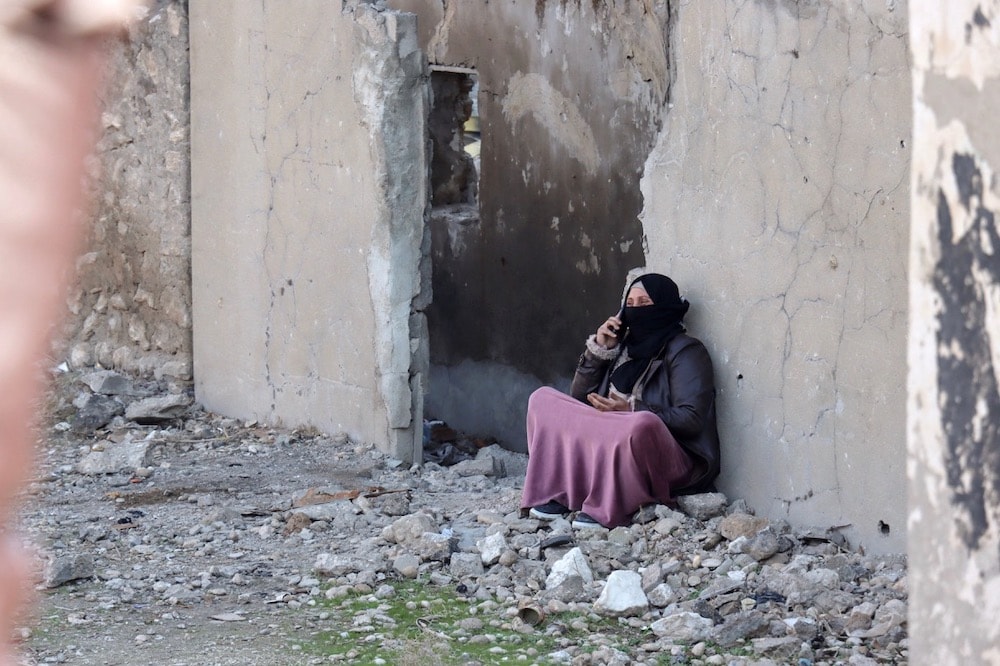The Gulf Centre for Human Rights (GCHR) says the new law contains several vaguely-defined articles that violate the right to freedom of expression and threaten digital rights and online privacy.
This statement was originally published on gc4hr.org on 21 April 2022.
On 18 April 2022, Syrian President Bashar Al-Assad ratified the Cybercrime Law No. 20 of 2022, which includes penalties ranging from one month to 15 years in prison, while fines range from 200,000 to 15 million (approx. 26,700 EUR) Syrian pounds for a group of acts classified by the law as cybercrimes. The Gulf Centre for Human Rights (GCHR) says the new law, which contains several vaguely-defined articles, violates the right to freedom of expression and threatens digital rights and online privacy.
The legislation, which was published by the government news agency (SANA) on its website, consists of 50 articles that include toughening penalties for publishing content online which the government finds objectionable, as well as both a prison sentence and a fine for anyone who publishes digital content on the Internet with the intention of “overthrowing or changing the regime in the country”, or “undermining the prestige of the state and compromising national unity.”
Article (3) (a) Paragraph (1) obliges Internet service providers to save traffic data for all subscribers for a period of time determined by the competent authorities, which is a flagrant violation of the digital privacy of citizens and provides ease of access by security services to all information related to peaceful online activists.
Article 27 is related to crimes against the constitution and stipulates the following: “Shall be punished by temporary detention from seven to fifteen years and a fine from (10,000,000) ten million Syrian pounds to (15,000,000) fifteen million Syrian pounds, whoever establishes or manages a website or a web page or publishes digital content on the network with the intent of provoking actions aiming or calling for changing the constitution by illegal means, or excluding part of the Syrian territory from the sovereignty of the state, or provoking armed rebellion against the existing authorities under the constitution or preventing them from exercising its functions derived from the constitution, or overthrowing or changing the system of government in the state.”
There is no doubt that this article is designed entirely in order to silence different opinions under unclear headings, as any digital content can theoretically be accused of leading to the overthrow or change of the regime or encouraging it.
Furthermore, Article (28), which is related to undermining the prestige of the state, states, “A penalty of temporary imprisonment from three to five years and a fine of (5,000,000) five million Syrian pounds to (10,000,000) ten million Syrian pounds shall be imposed on whoever performs in any of the information technology tools publication of false news on the network that would undermine the prestige of the state or prejudice national unity.”
It represents another attempt to use this law as a repressive tool through extremely broad terms such as “state prestige” and “national unity”, after labelling all the confirmed facts published by bloggers and internet activists as “fake news” in preparation for their imprisonment, which can be presumed to be the aim of the law.
GCHR expresses serious concern about the new legislation, and in particular the provisions outlined above. It is easily possible for security agencies to use this law to violate many of the basic digital rights of citizens, especially freedom of expression and freedom of digital privacy. GCHR also expresses its concern that this law may be used arbitrarily to target human rights defenders, including Internet activists, human rights organisations and those calling for reform inside and outside Syria, subjecting them to harsh sentences.
GCHR believes that the law should be reviewed and its definitions defined more clearly to ensure the existence of a strong and practical law that does not violate the basic rights of citizens, but rather contributes to creating a free and accessible Internet in which diverse opinions are respected and human rights are protected and promoted.



